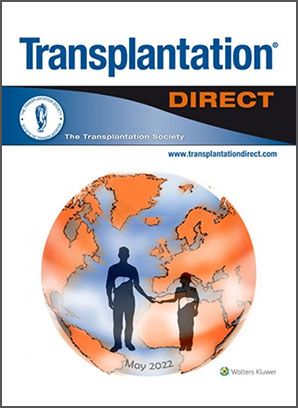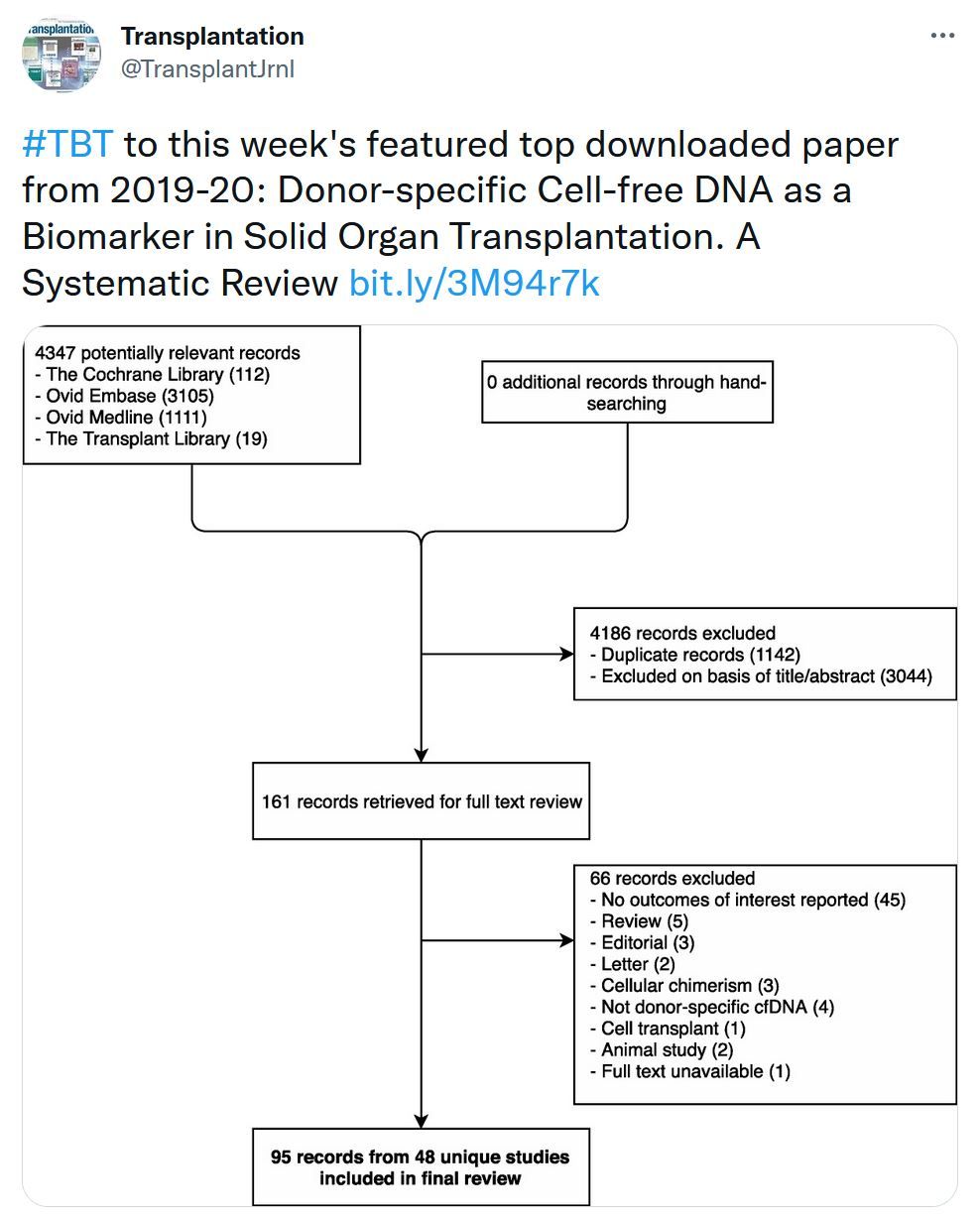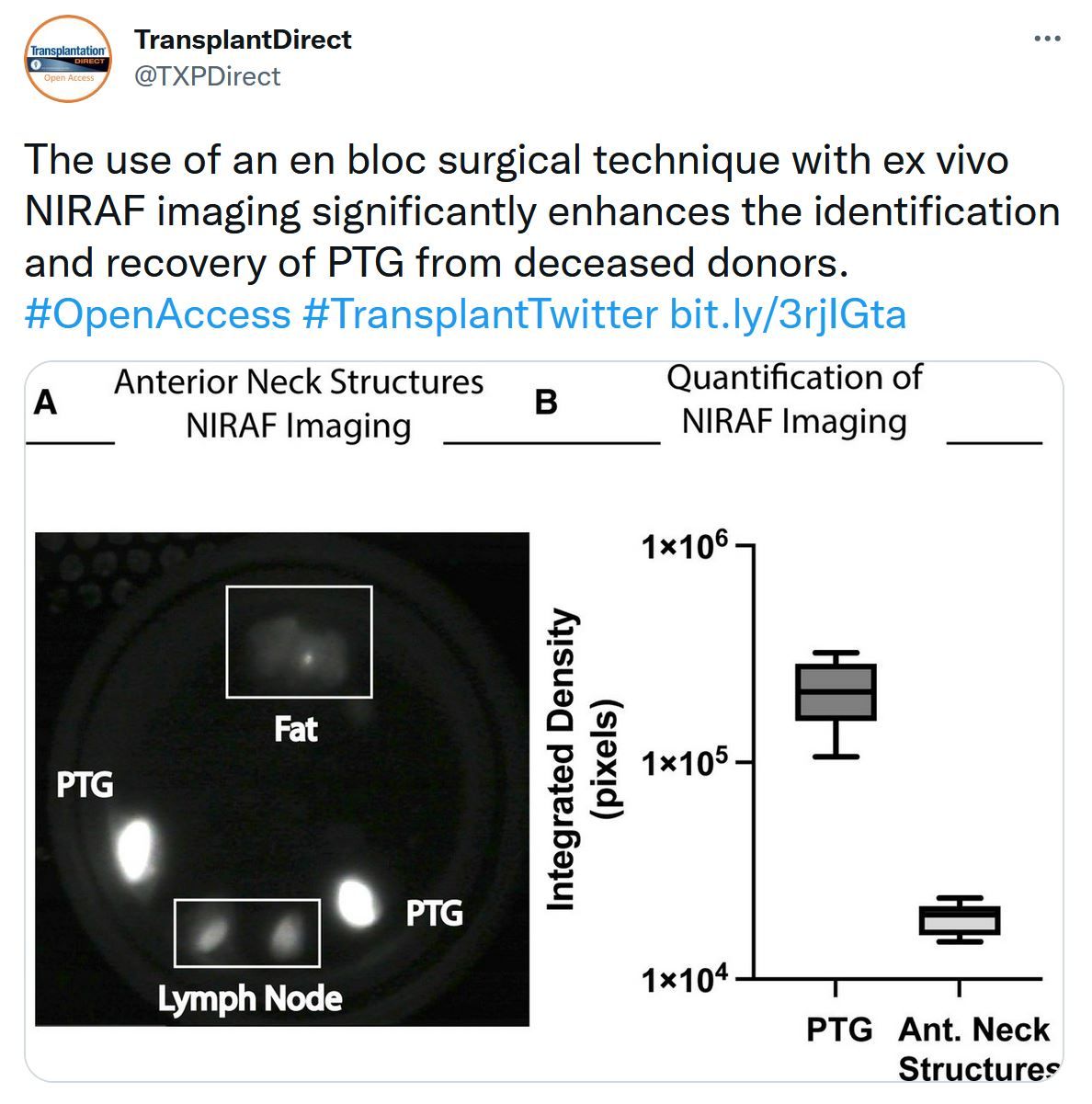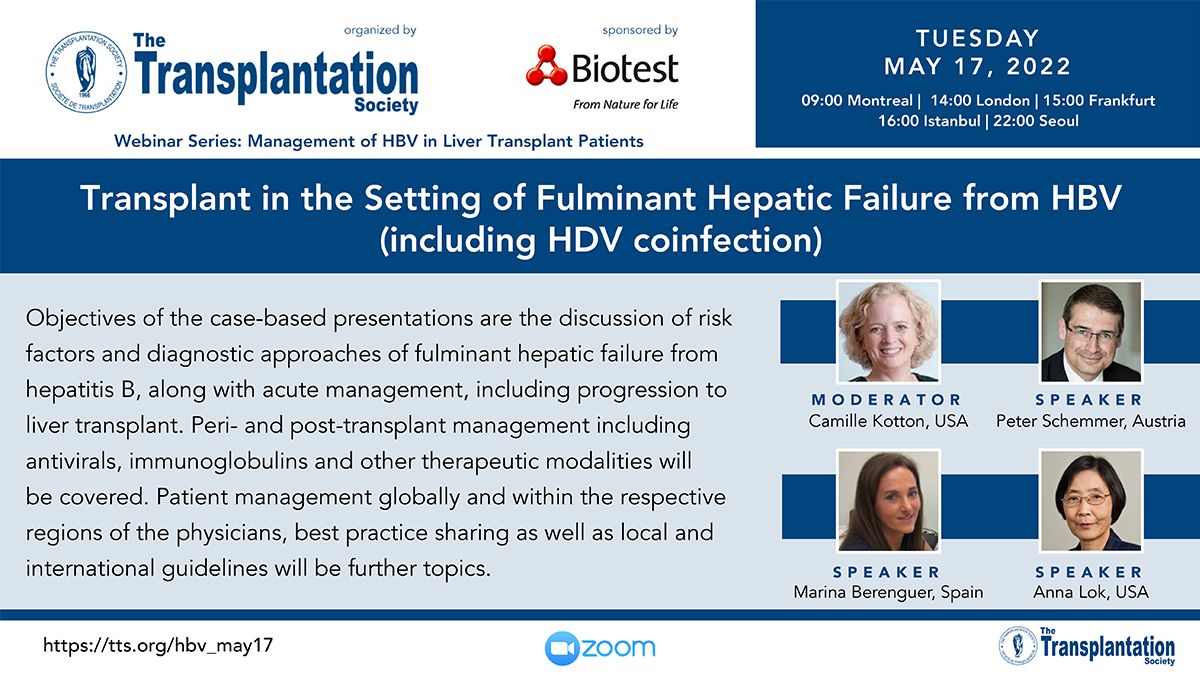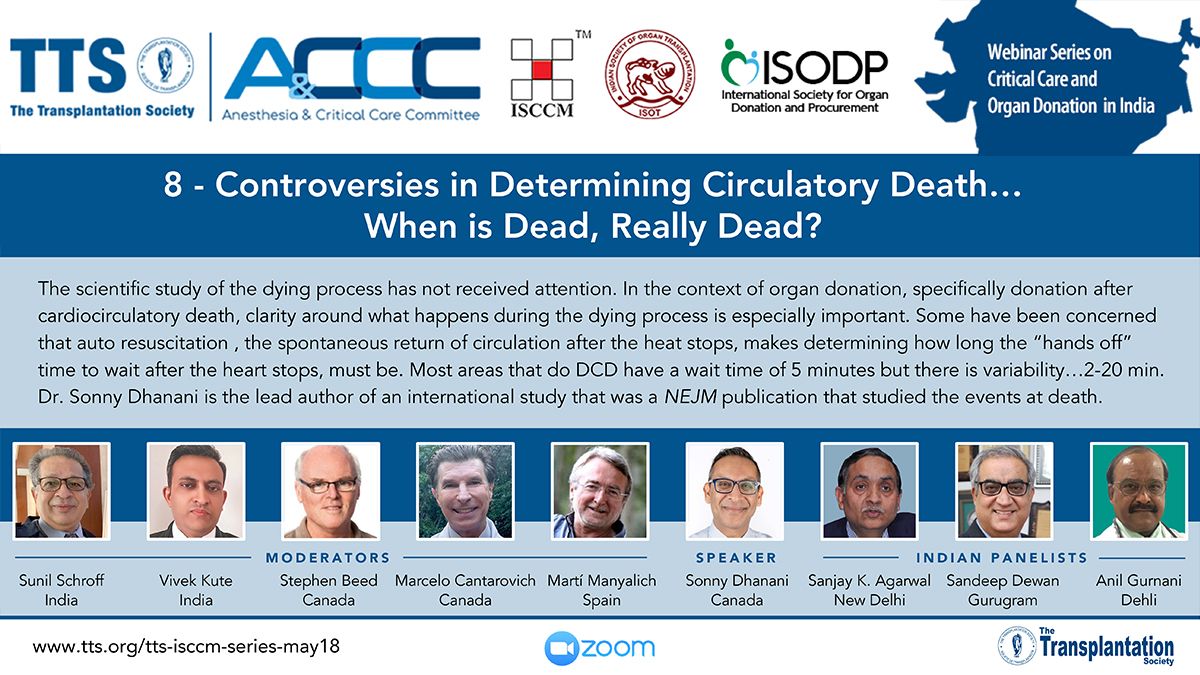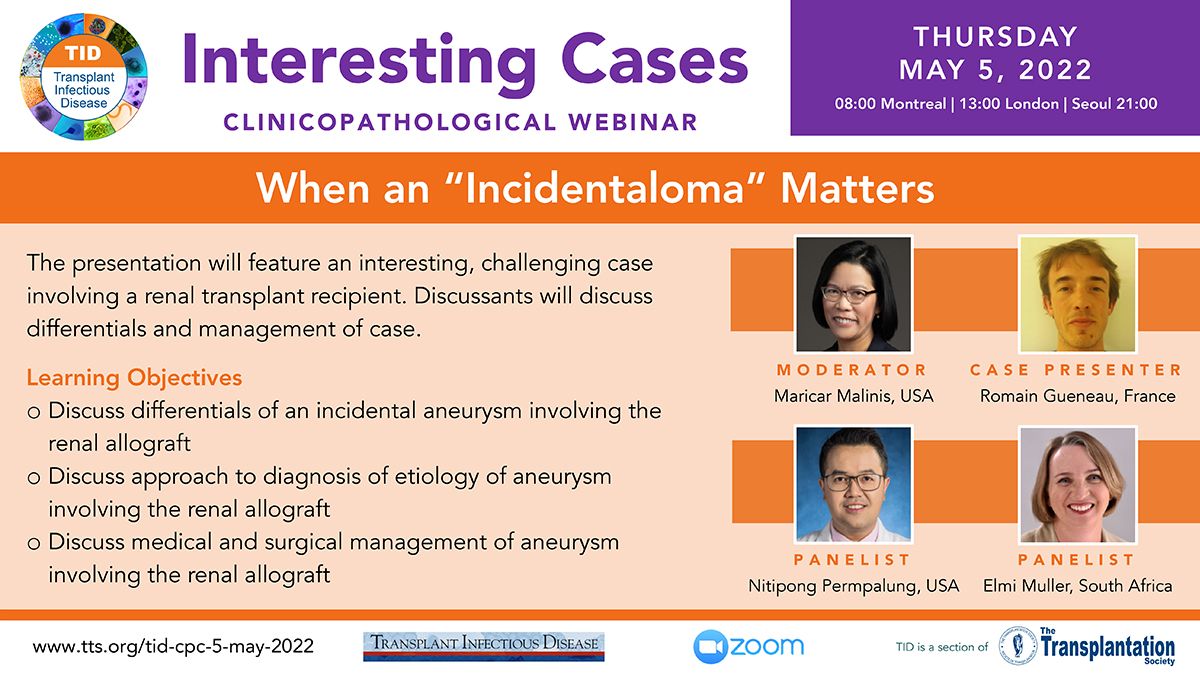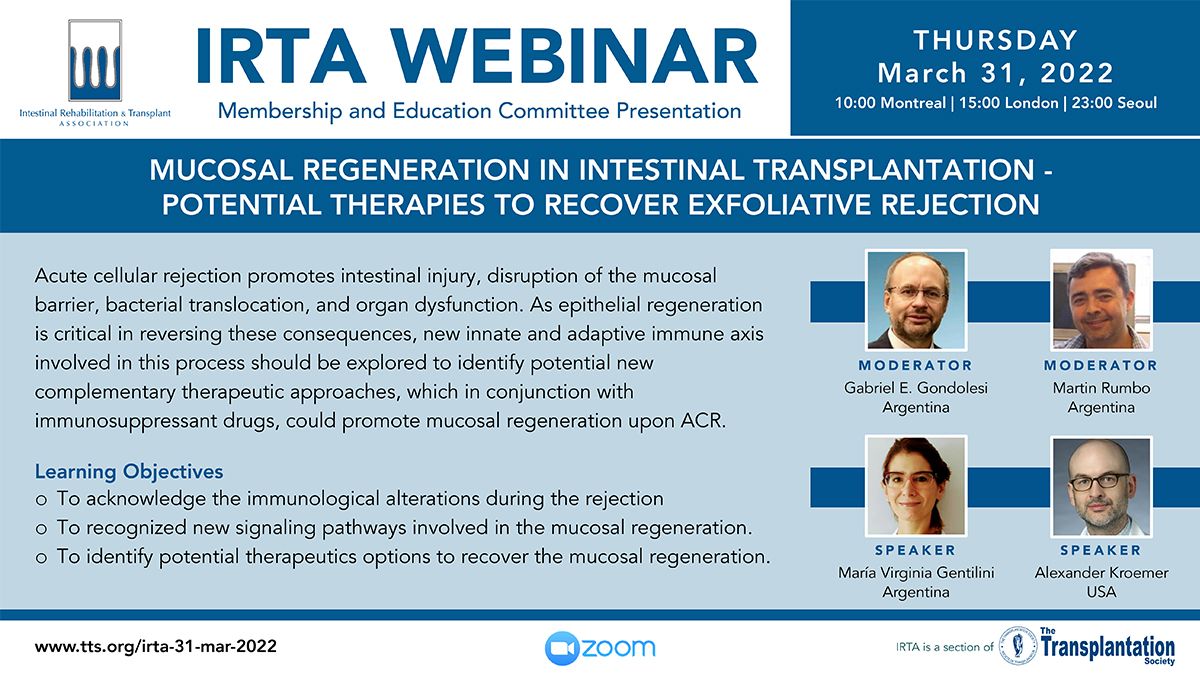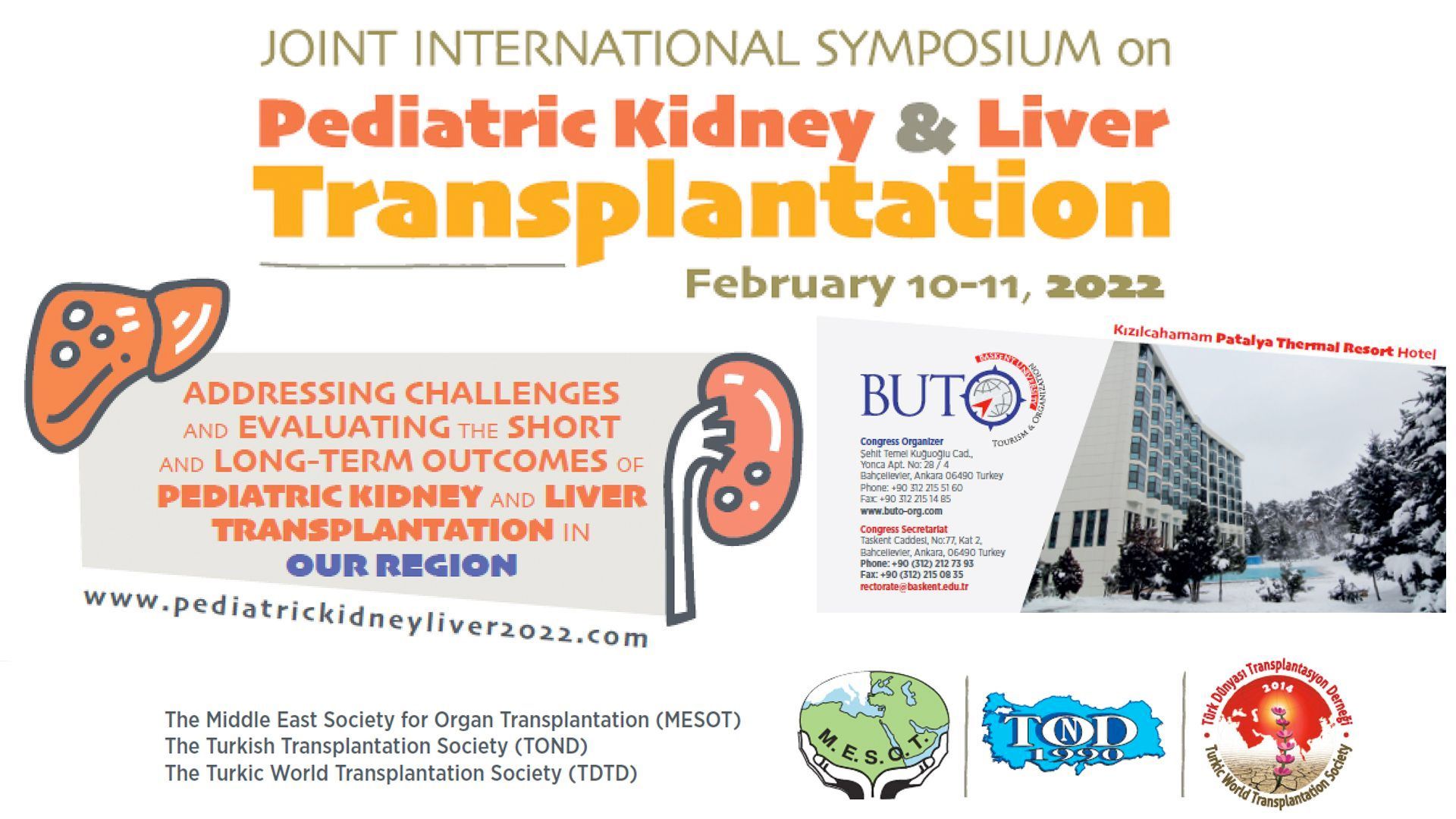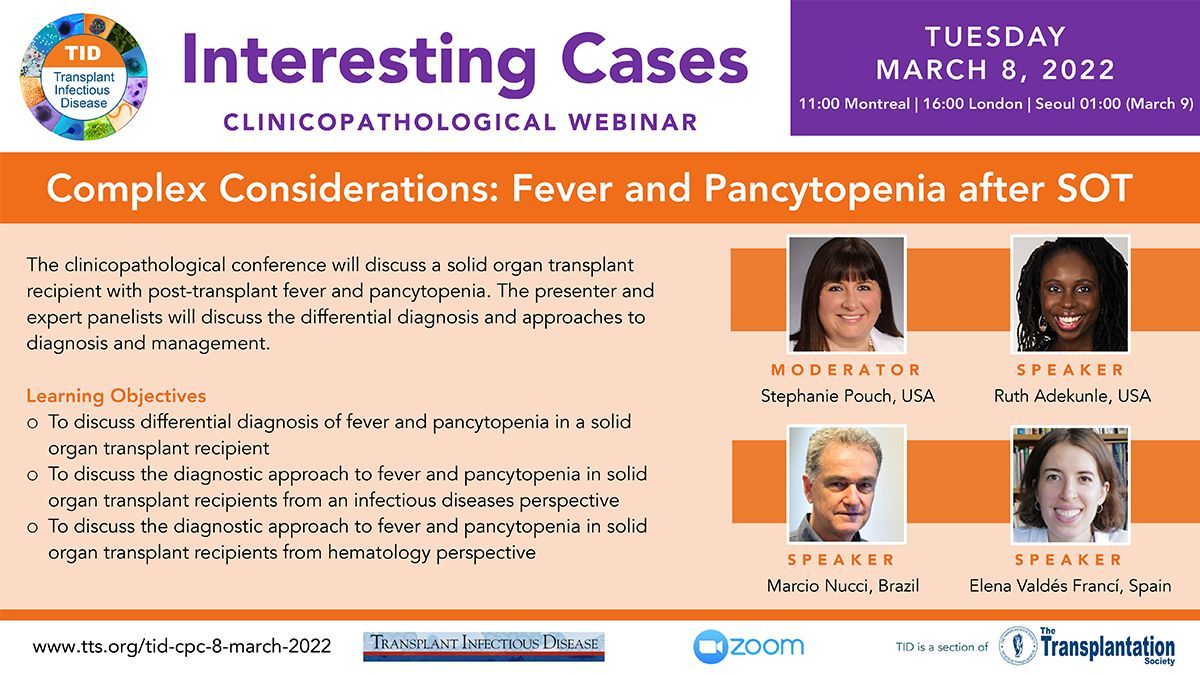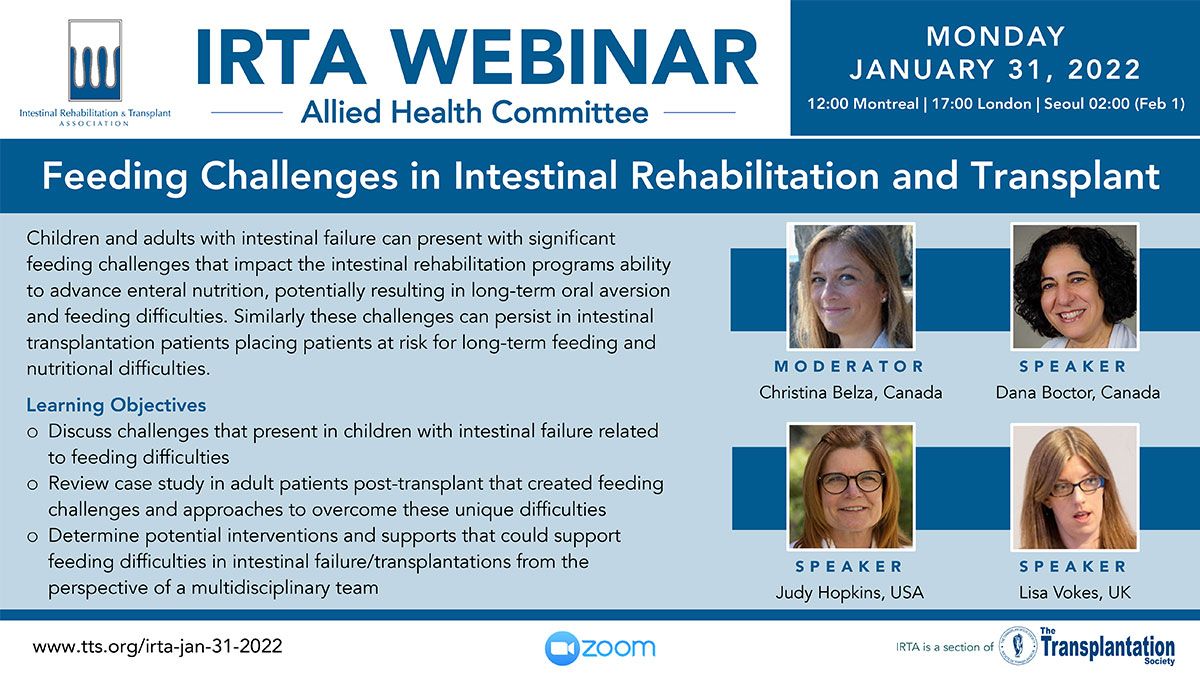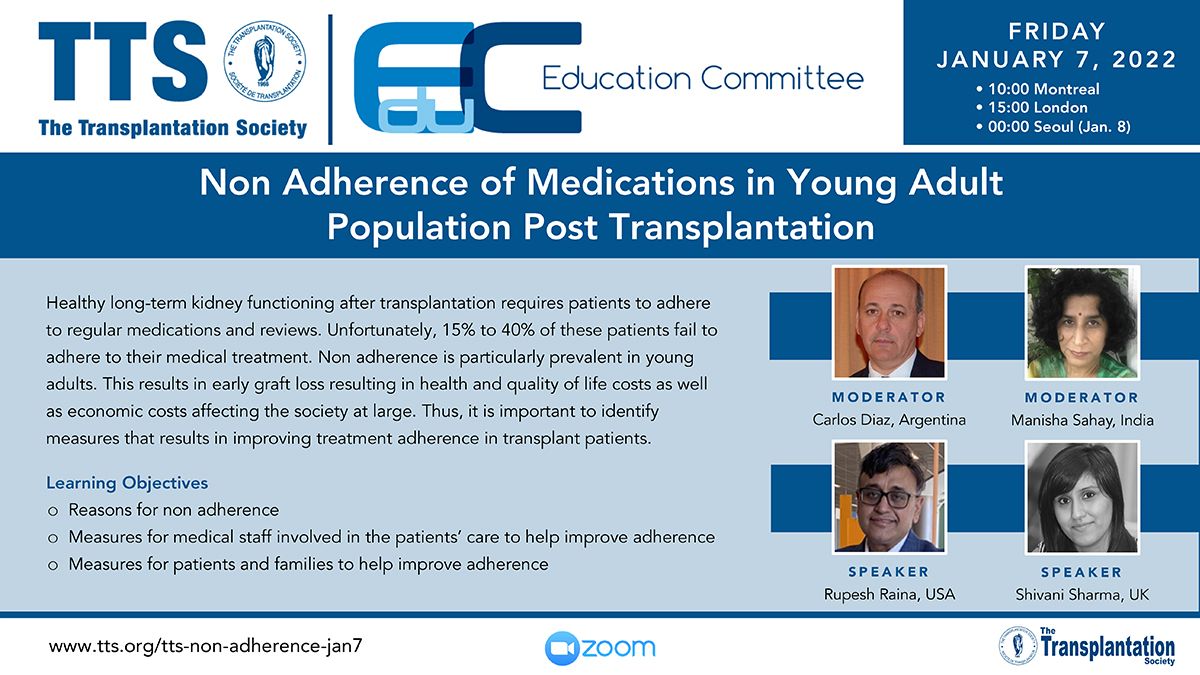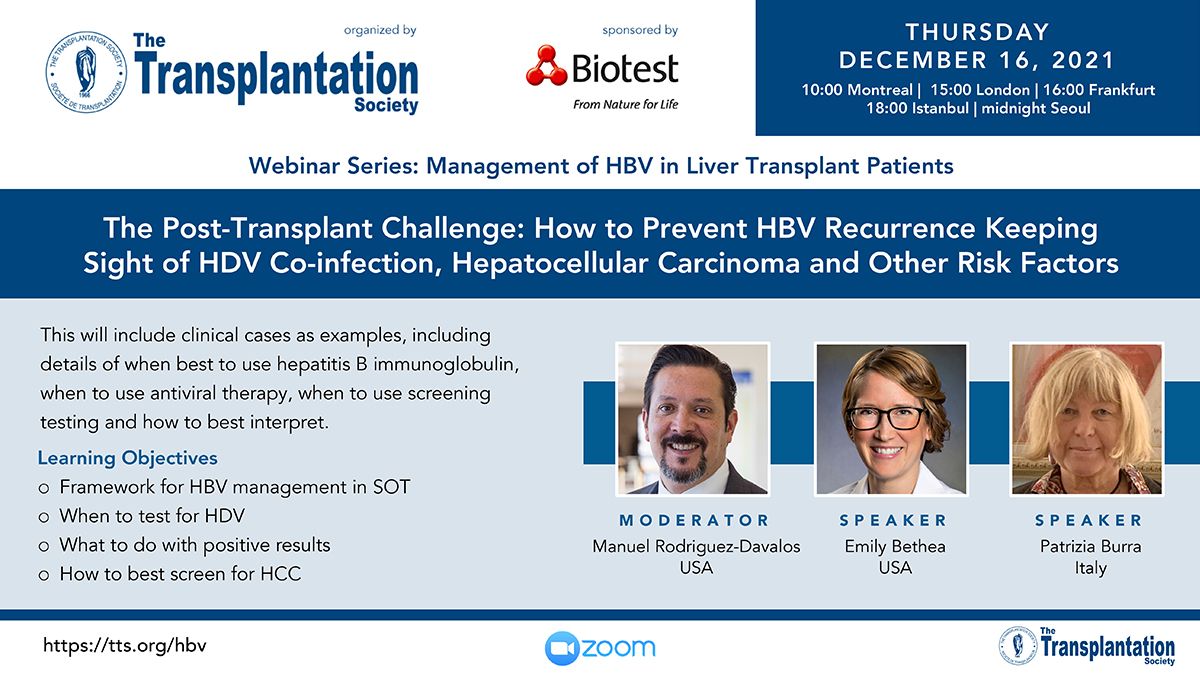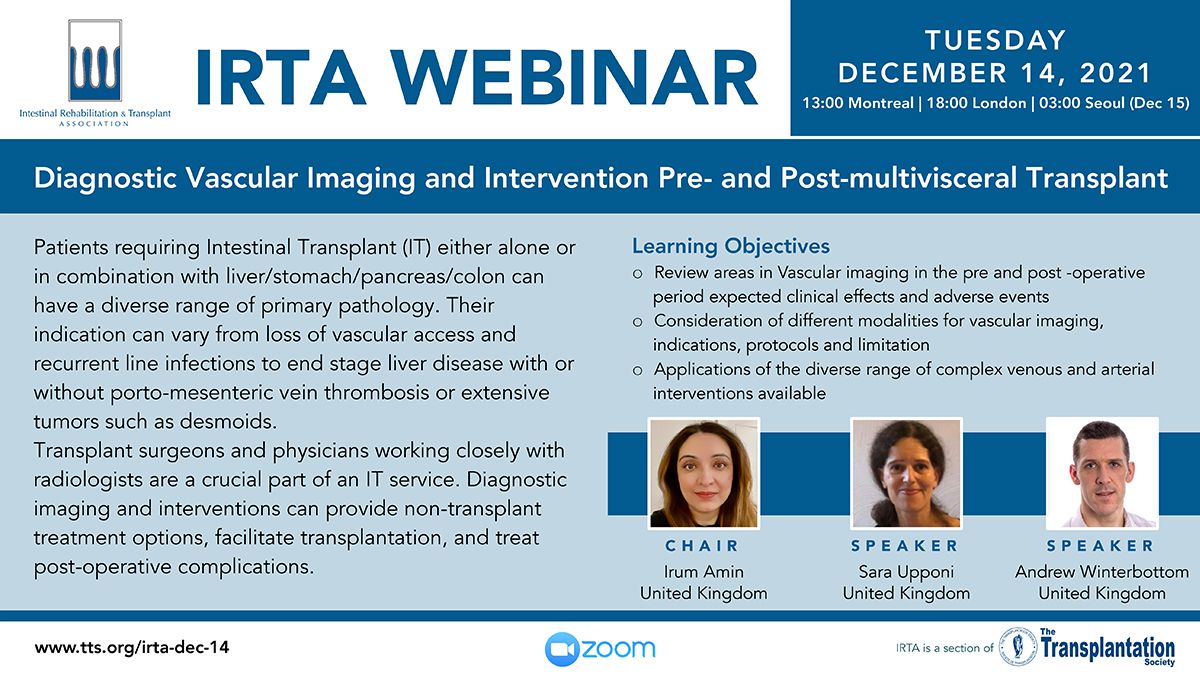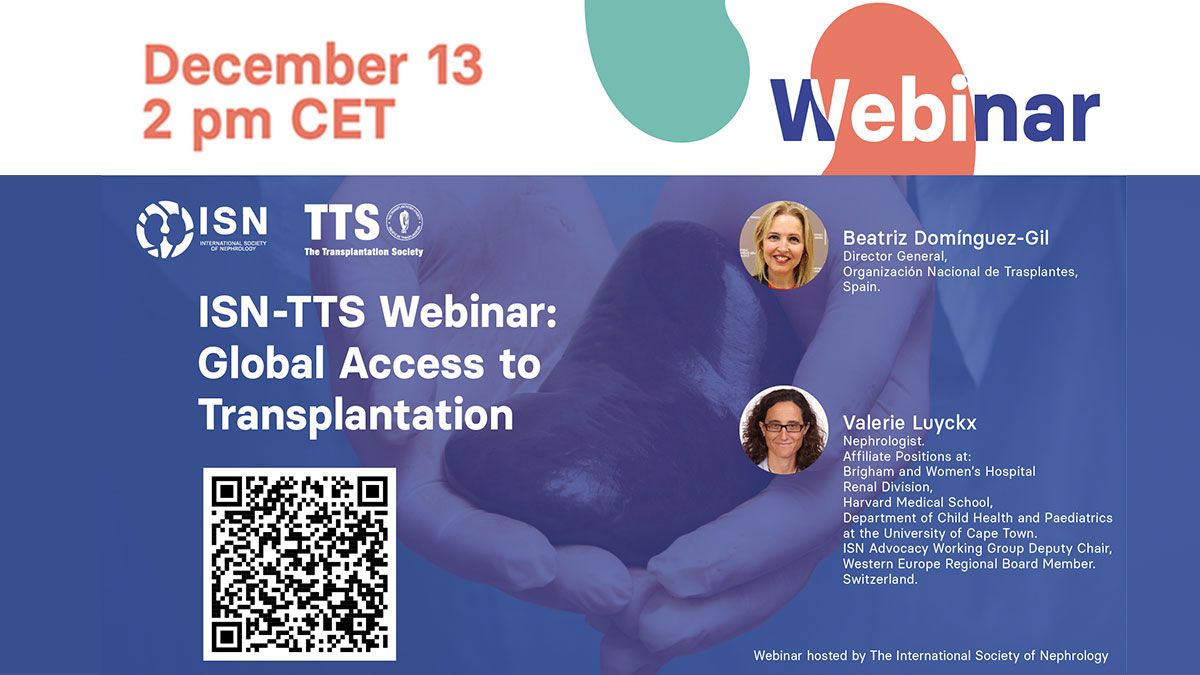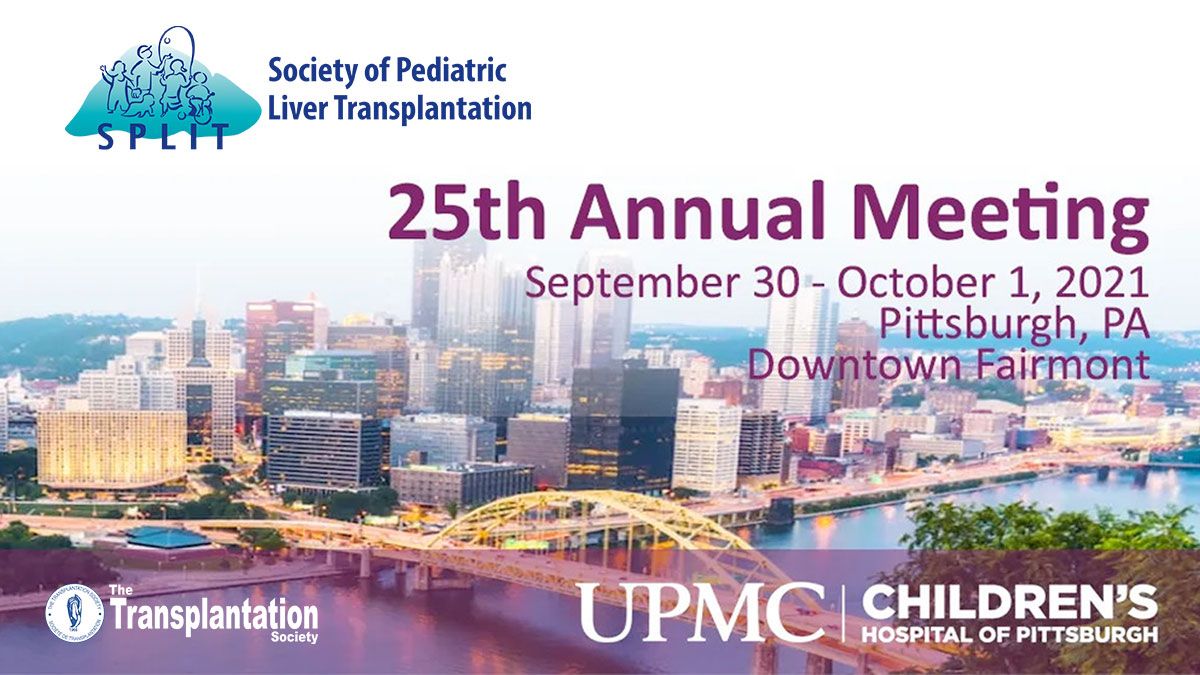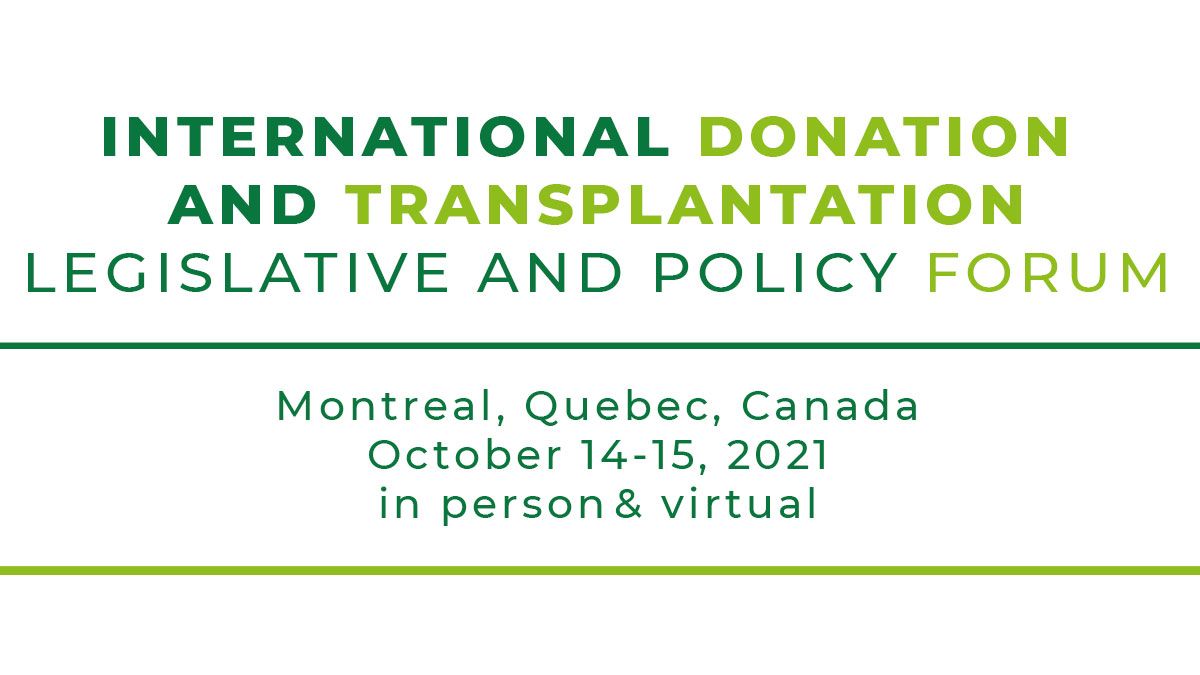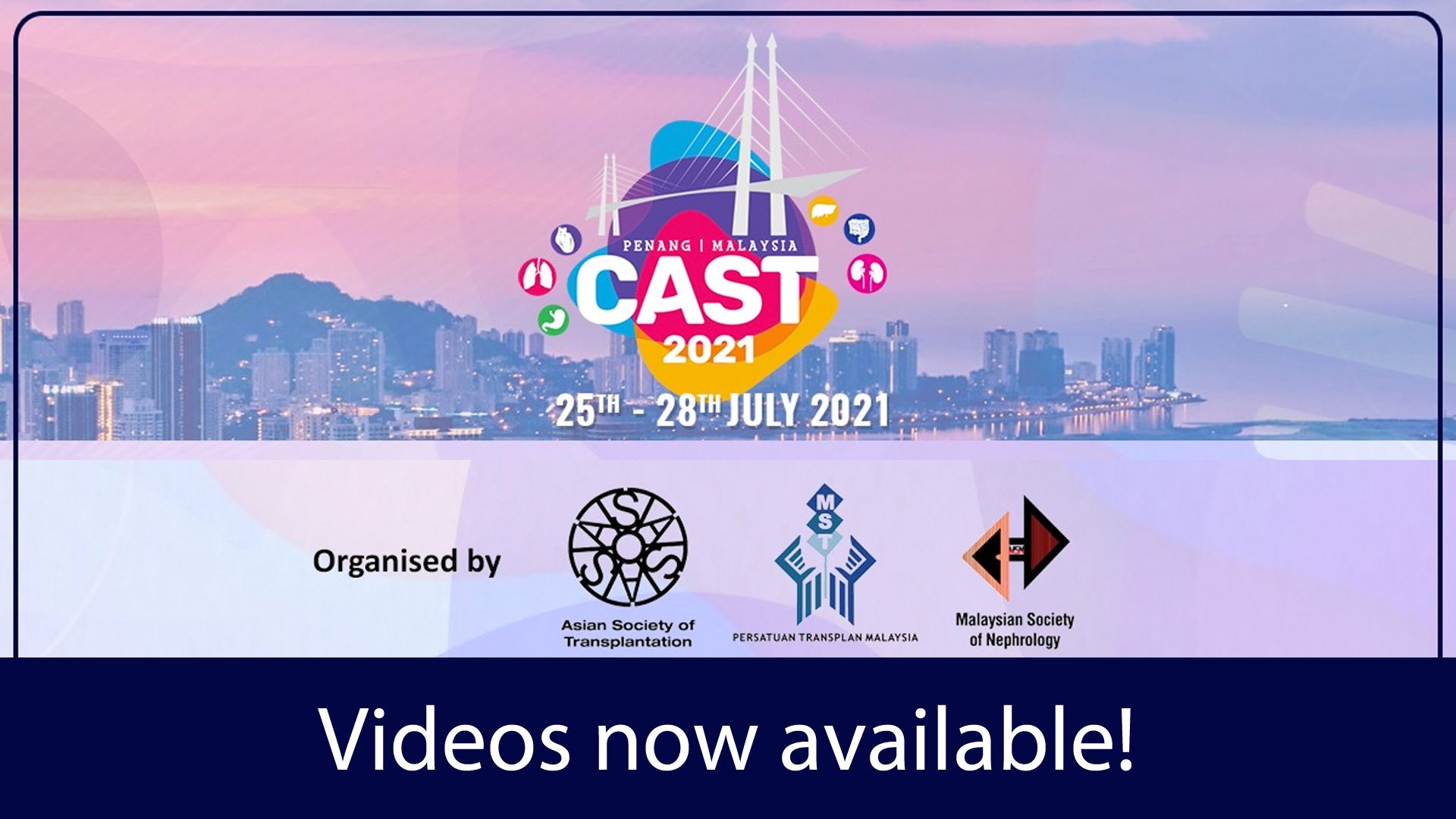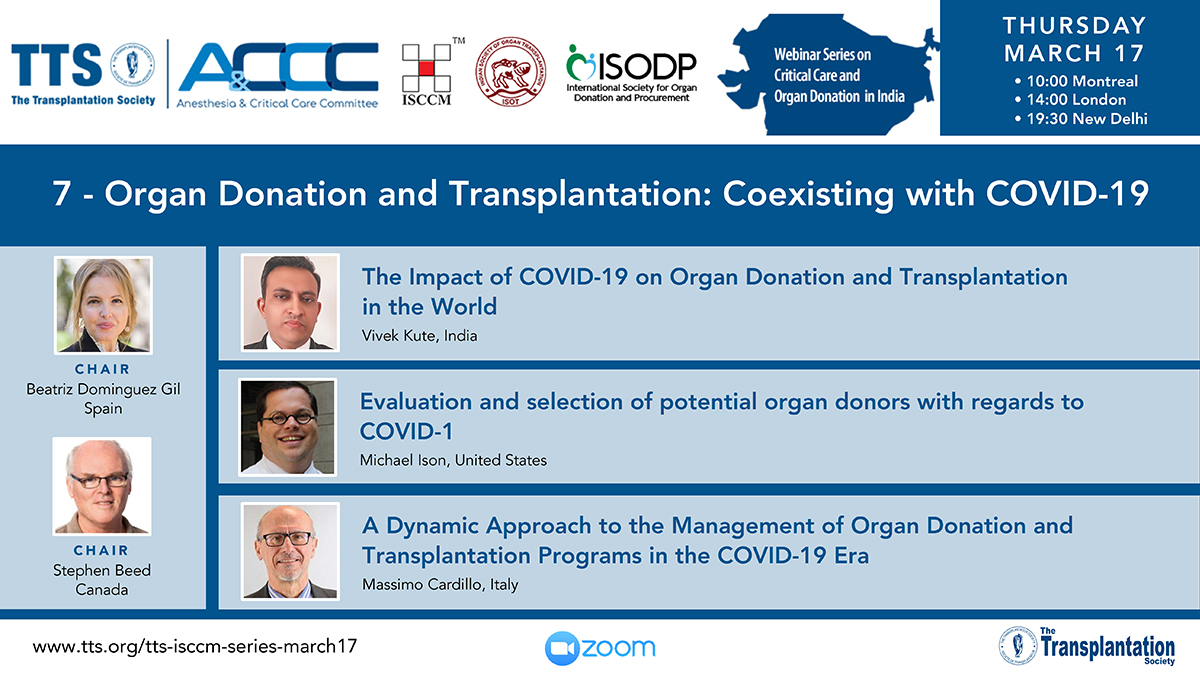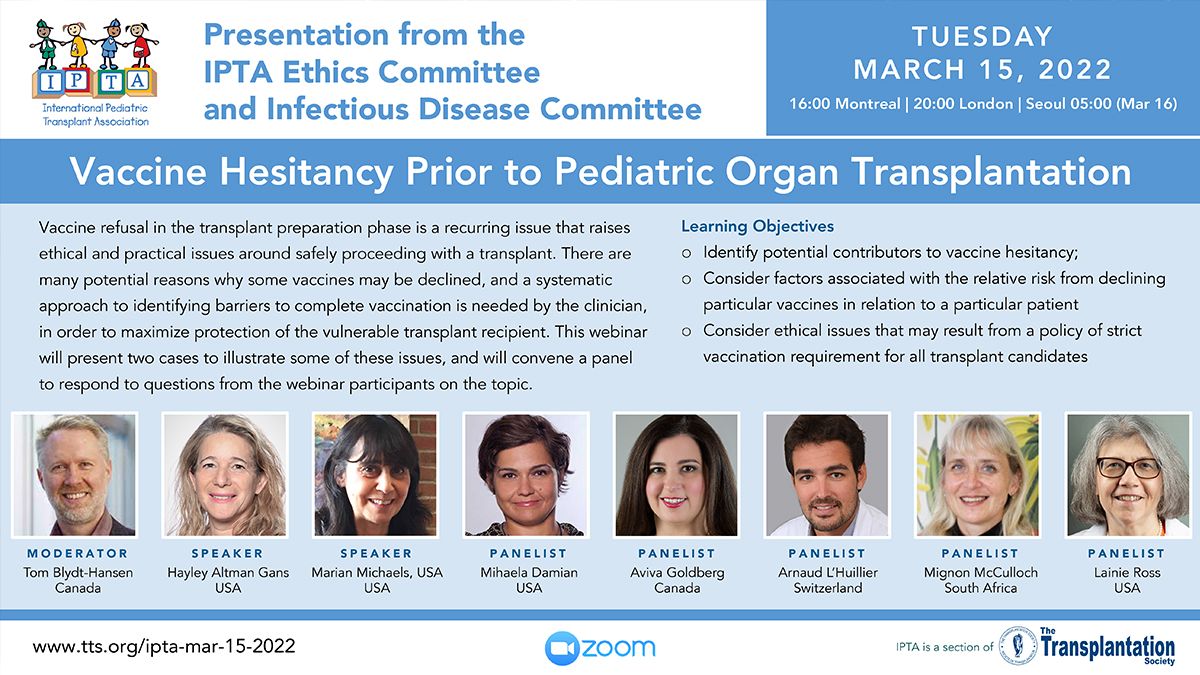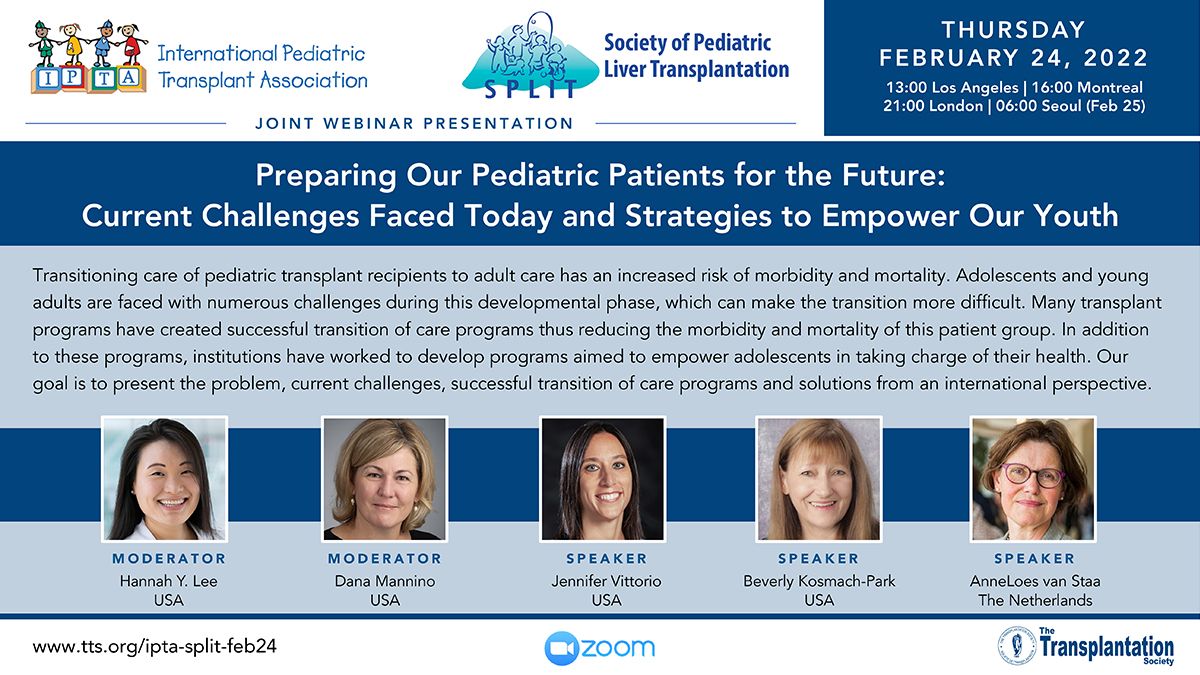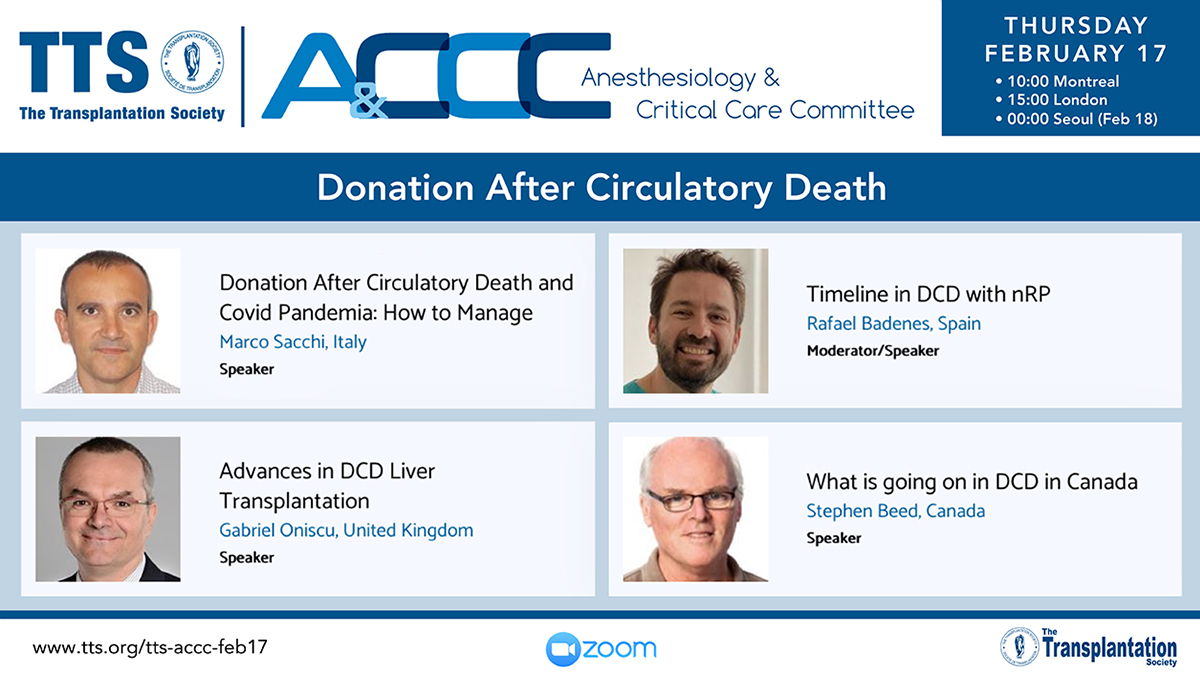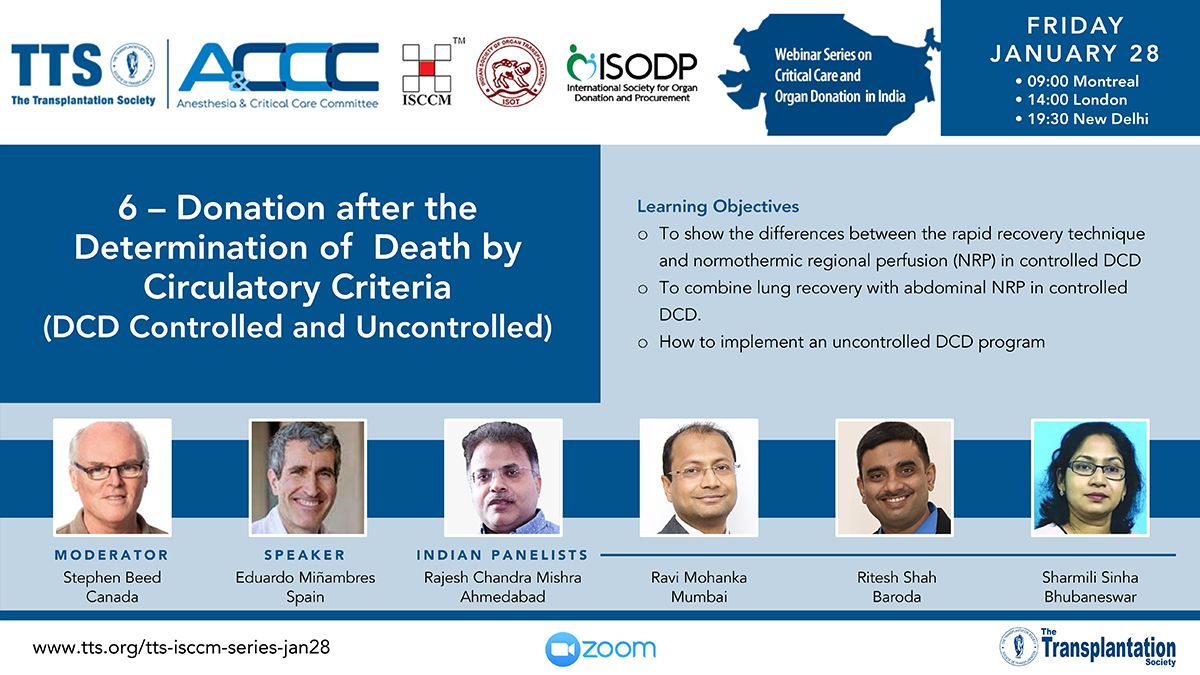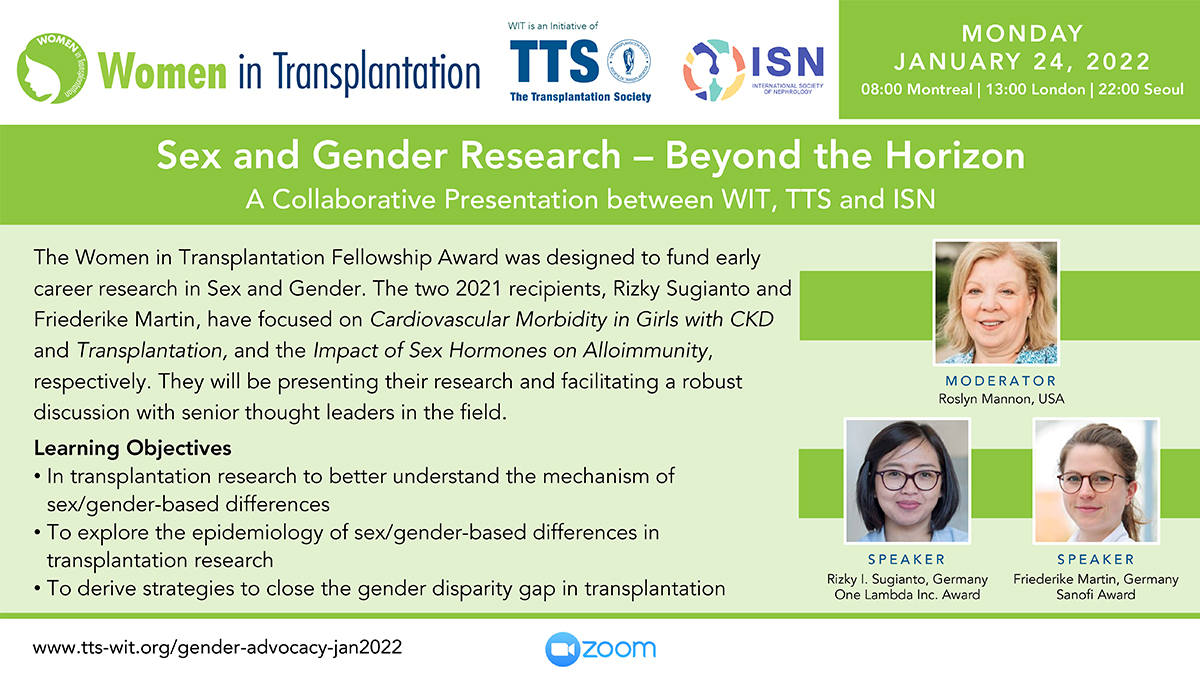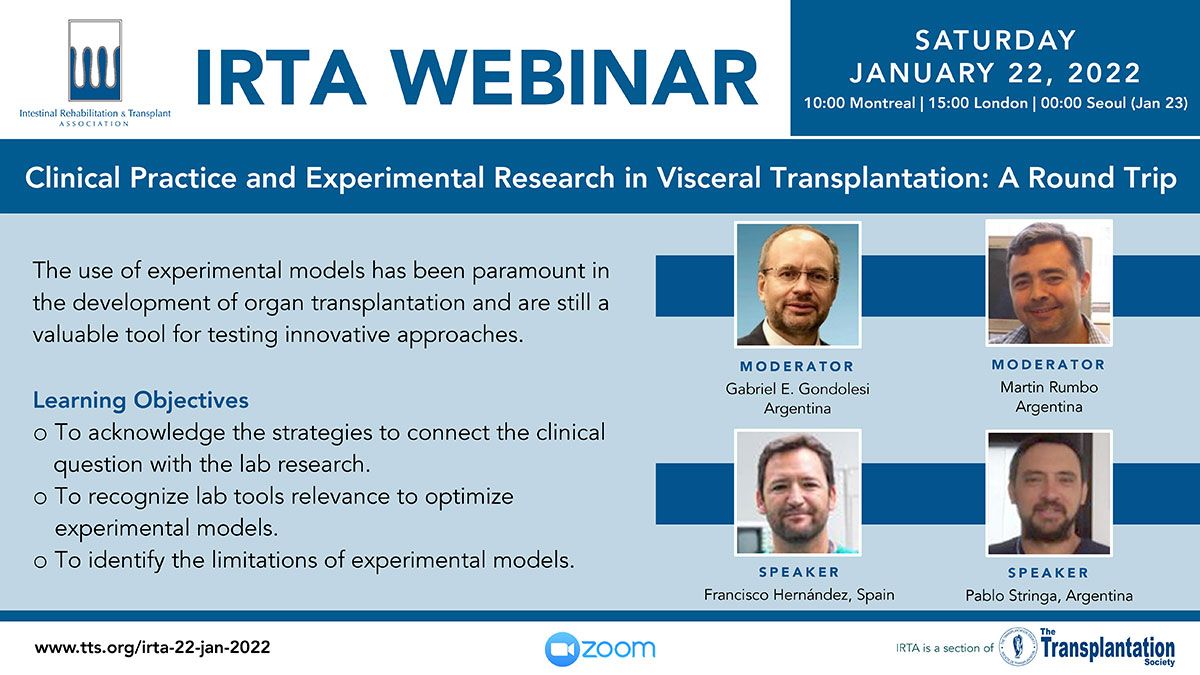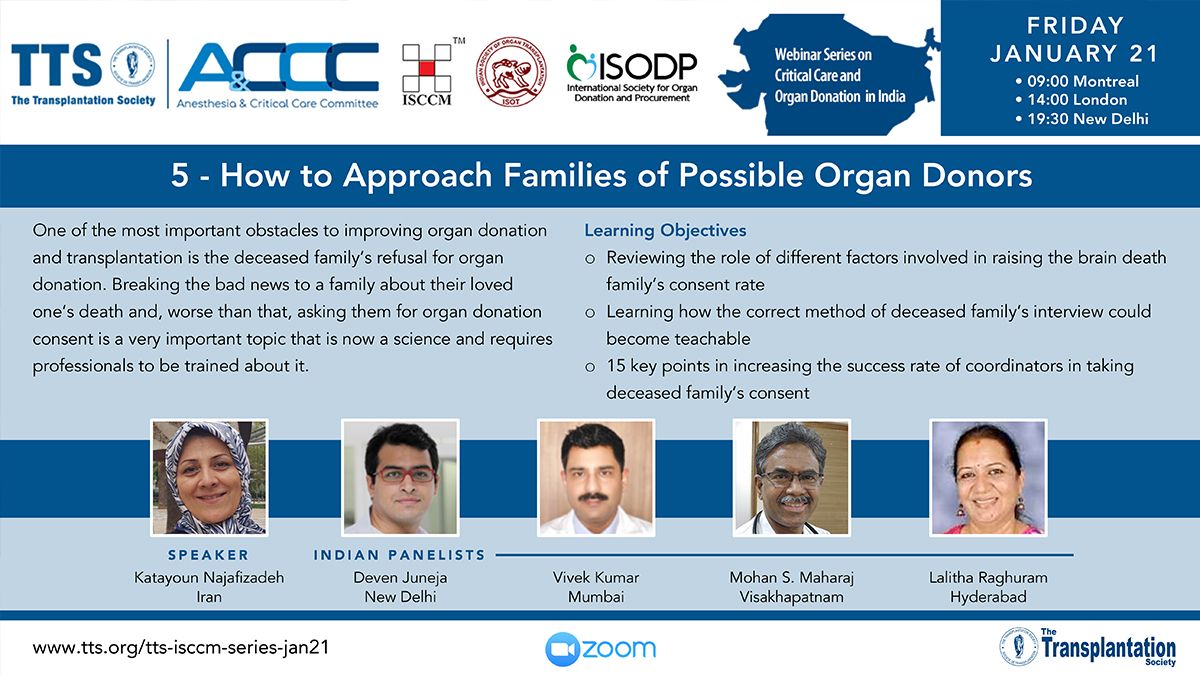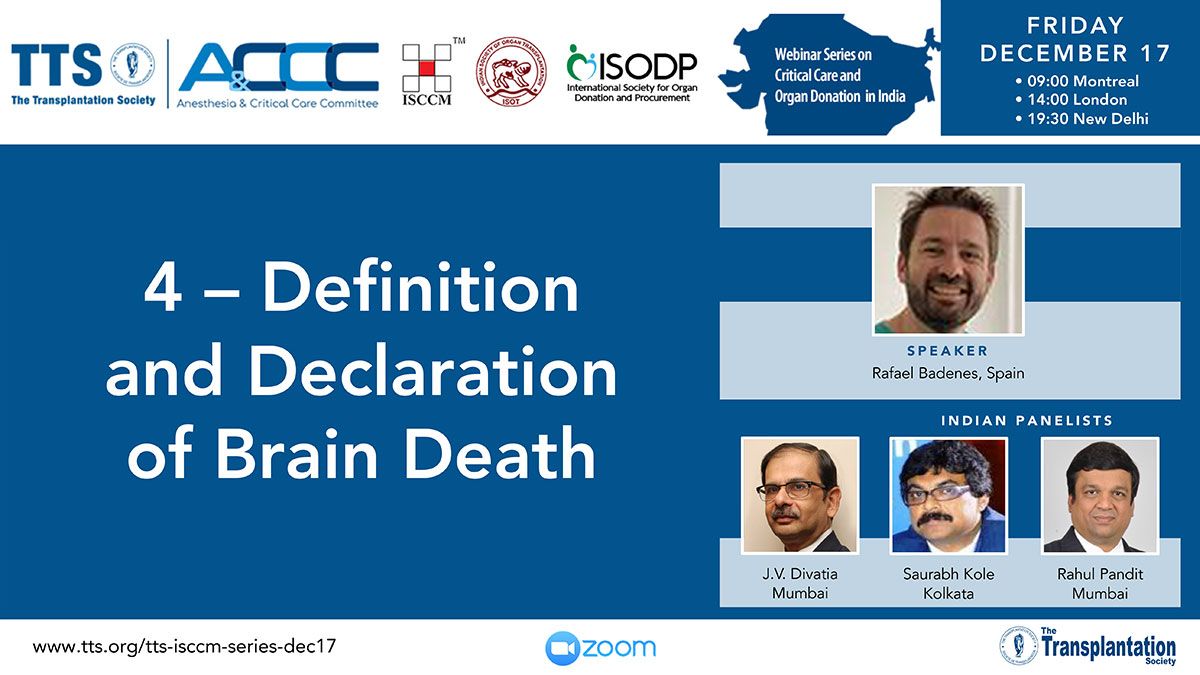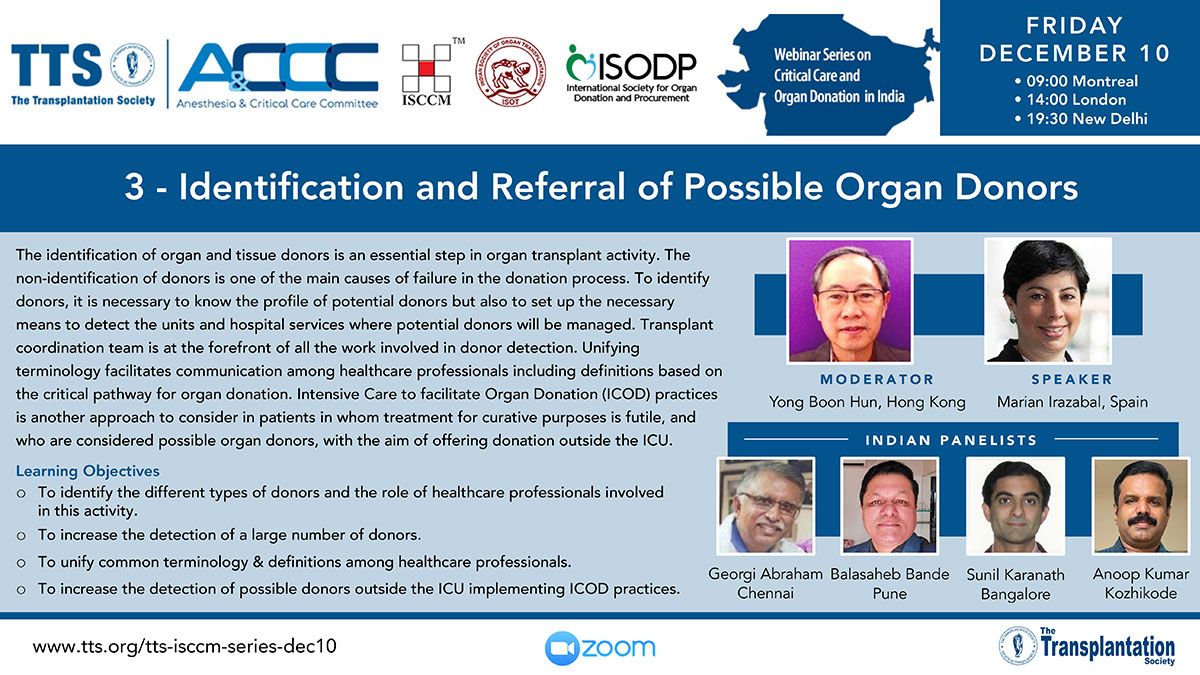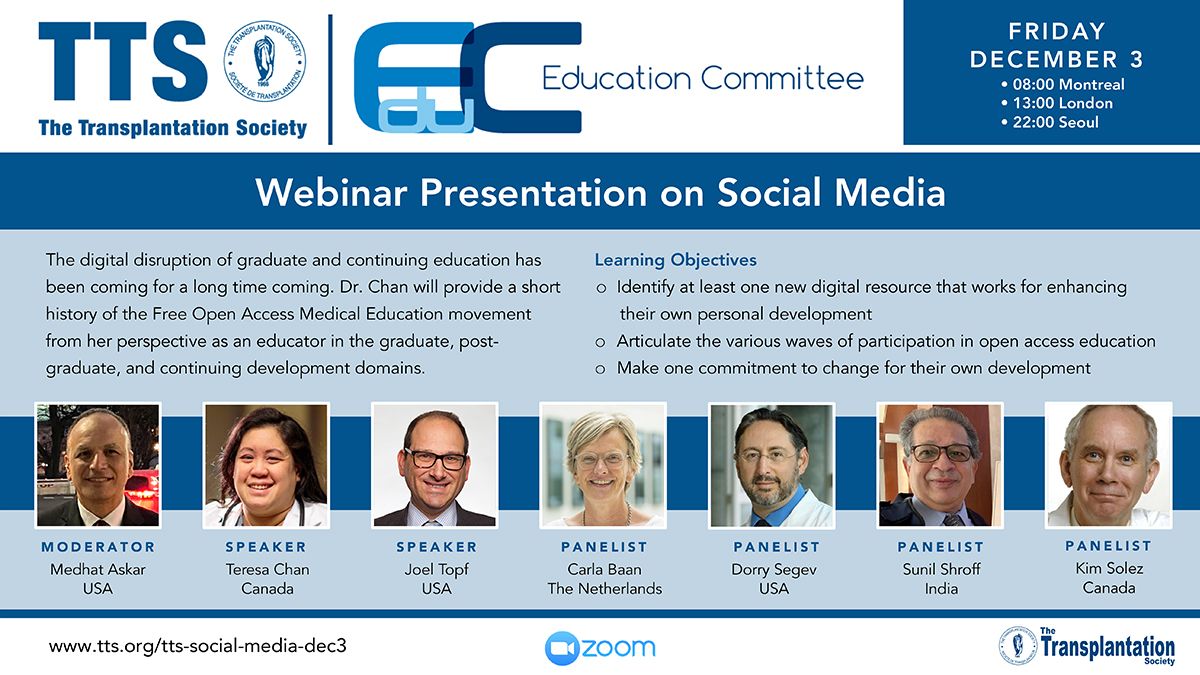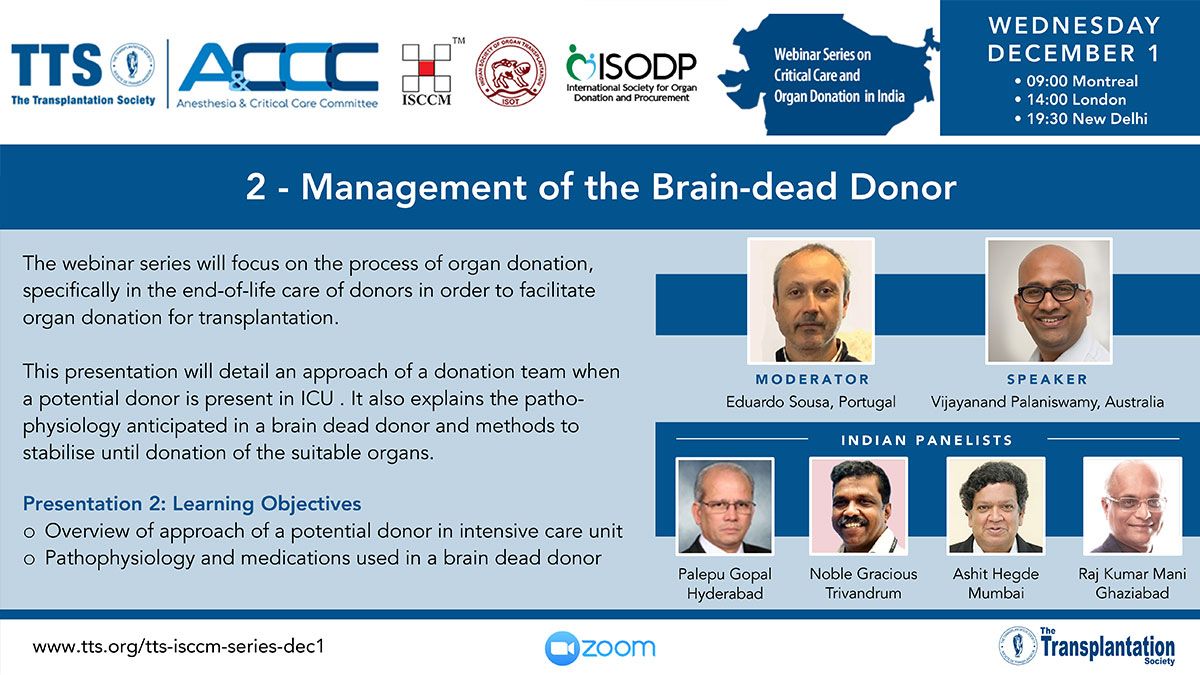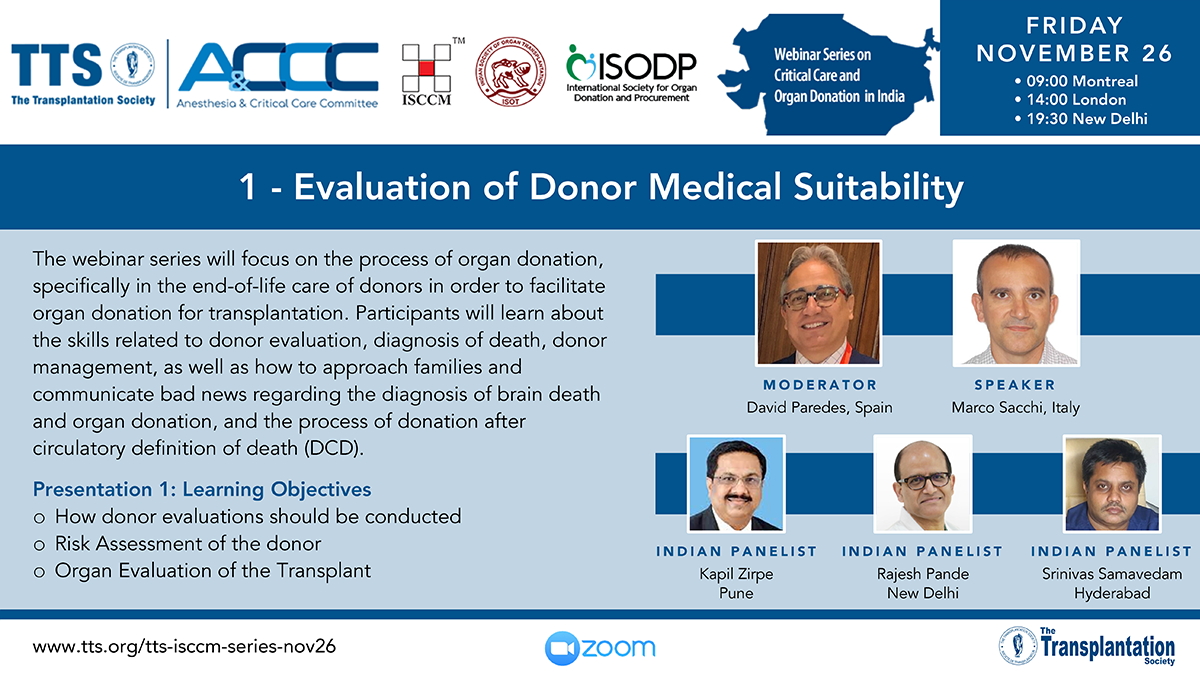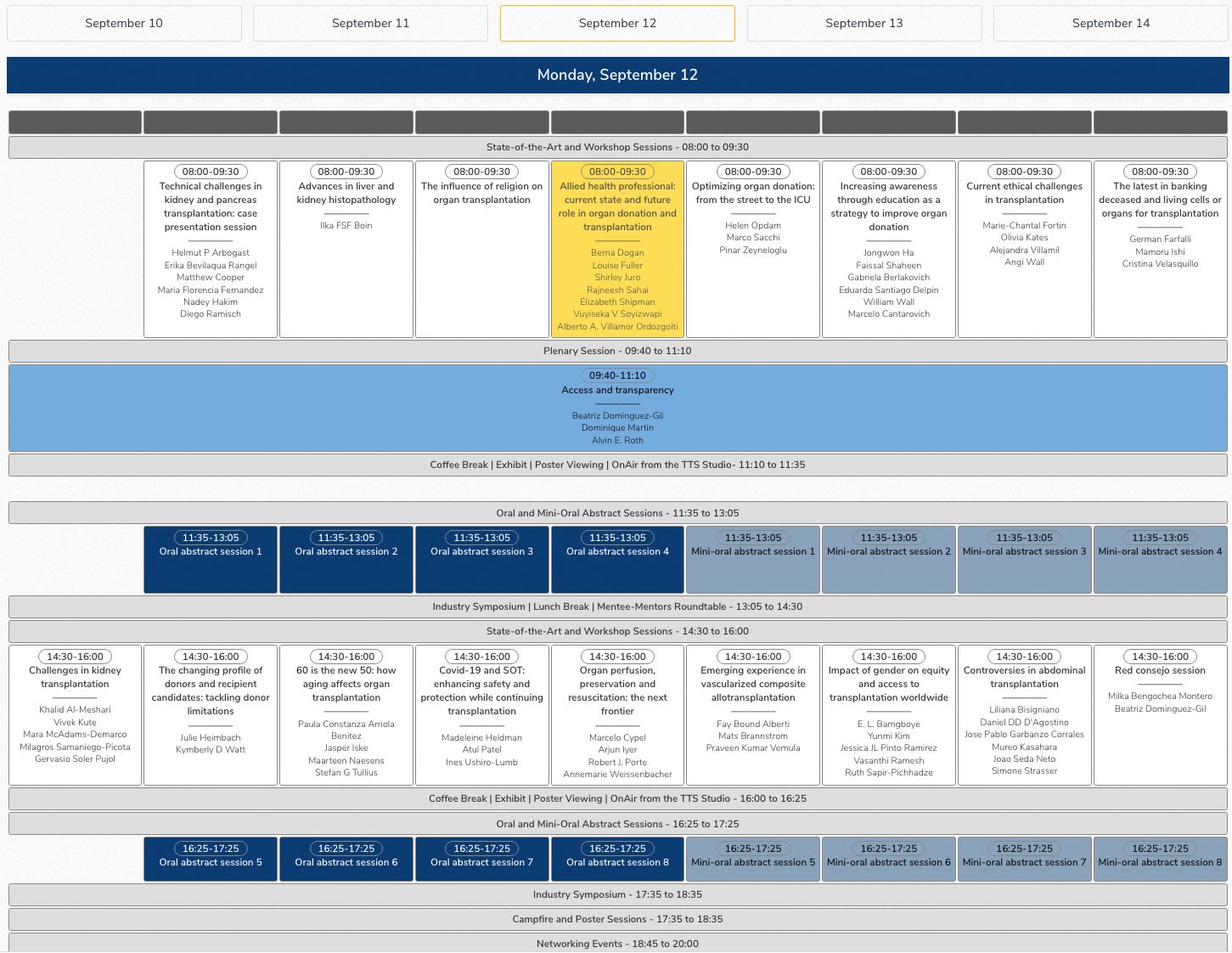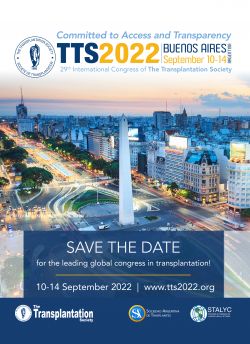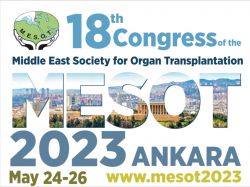

Transplantation Direct - May 2022 Issue
JUST RELEASED - TRANSPLANTATION DIRECT - MAY ISSUE
The May issue of Transplantation Direct covers a wide variety of medical, scientific and ethical topics in transplantation. In kidney transplantation, there are articles on robot assisted versus open procedure surgery outcomes, a proteomics-based approach to detect acute rejection in a Phase III multicenter trial, affects of HLA homozygosity on sensitization likelihood, detecting suboptimal outcomes using the kidney donor profile index, and the cost-effectiveness of polyomavirus screening in transplant recipients. Studies in liver transplantation are presented related to outcomes using pediatric donor organs in adult recipients, to the impact of the recent MMaT policy on transplant waitlist outcomes for HCC patients, and to “textbook outcomes" using UNOS data as a quality metric. In pancreas and islet transplantation, the use of dd-cfDNA to detect rejection in simultaneous pancreas and kidney transplant recipients is evaluated, and a novel – simple - technique is tested for islet isolation in the intra-operative setting of total pancreatectomy with islet-auto-transplantation. Other articles look at PBMC separation idiosyncrasies in transplant recipient patients, as well as review public understanding of the definition and determination death, and characterize industry-related payments to transplant surgeons using data from the “Open Payments Program". Please visit our open access Transplantation Direct website for full details on all of these articles.
Transplantation - Week's Most Downloaded Paper
Donor-specific Cell-free DNA as a Biomarker in Solid Organ Transplantation. A Systematic Review #TBT
There is increasing interest in the use of noninvasive biomarkers to reduce the risks posed by invasive biopsy for monitoring of solid organ transplants (SOTs). One such promising marker is the presence of donor-derived cell-free DNA (dd-cfDNA) in the urine or blood of transplant recipients.Transplantation Direct - Week's Most Downloaded Paper
Procurement of Deceased Donor Parathyroid Glands With the Aid of Near-infrared Autofluorescence Imaging #OpenAccess #TransplantTwitter
Parathyroid allotransplantation is a burgeoning treatment for severe hypoparathyroidism. Deceased donor parathyroid gland (PTG) procurement can be technically challenging due to lack of normal intraoperative landmarks and exposure constraints in the neck of organ donors. In this study, we assessed standard 4-gland exposure in situ and en bloc surgical techniques for PTG procurement and ex vivo near-infrared autofluorescence (NIRAF) imaging for identification of PTGs during organ recovery.Notice - The WHO Seventy-fifth World Health Assembly - May 22-28
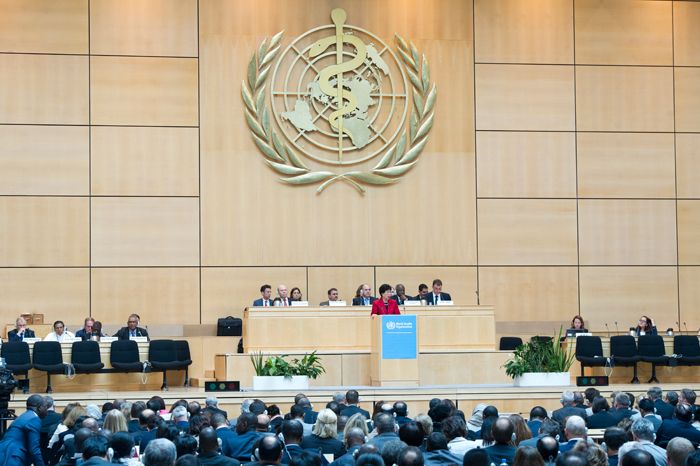
Human organ and tissue transplantation will be on the agenda for the upcoming "Seventy-fifth World Health Assembly" being held from May 22-28. In advance of the assembly the Director-General issued a PDF report which may be downloaded below. TTS will make a statement addressed to the Assembly commenting on the report, endorsing WHO action and encouraging member states to continue to invest in transplantation.
IPTA 2022 recordings are now available!
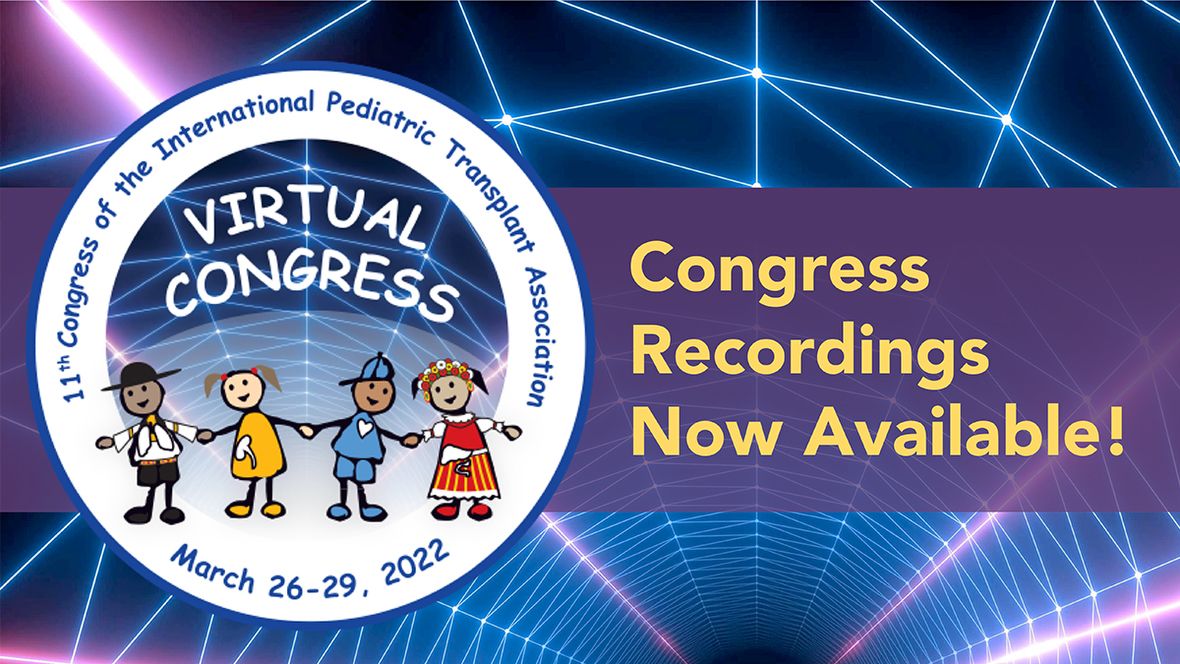
IPTA is delighted to announce that the recordings from the 11th IPTA Congress are now available for viewing for IPTA and TTS members on the IPTA website. Don’t miss the opportunity to learn from this rich educational content.
On May 17 the Webinar Series on the Management of HBV in Liver Tx Patients Continues!
TTS 2022 - Program overview with speakers is available

Take a few minutes to look over our program to start planning your trip to Argentina!
Registration and Accommodation will be launching soon. Stay tuned for the details!

TTS 2022 Elections are ongoing until May 11, 2022. Vote today!

Voting is an important responsibility and privilege for all our members and by taking a moment to vote you will help shape our leadership and our future!
About our TTS Ukraine Fund and TTS Matching of Donations

Statement of The Transplantation Society’s support to the people of Ukraine.
As the global leader in transplantation, committed to health and life for all, The Transplantation Society expresses grave concern over the escalating violence and humanitarian crisis in Ukraine.
The protection of civilians and preservation of healthcare is imperative. TTS stands ready to support our colleagues, friends, families and patients impacted by this tragedy. As a non-State actor in official relations with the World Health Organization, we will seek collaborate with the WHO to provide our expert assistance on the Ukraine emergency
We are monitoring the situation and have setup a donation page (https://ukraine.tts.org) to collect funds to be distributed to support the maintenance of healthcare in the Ukraine and assist transplant patients as may be possible. We will also reach out to contacts to assess how we can assist to re-establish transplantation activities once the crisis has ended. TTS will match each contribution, dollar for dollar, up to $50,000 USD in total.
Contact
Address
The Transplantation Society
International Headquarters
740 Notre-Dame Ouest
Suite 1245
Montréal, QC, H3C 3X6
Canada
Используйте Вавада казино для игры с бонусом — активируйте промокод и начните выигрывать уже сегодня!

